Golden empathy: Iranian women donate jewelry for people in Lebanon, Gaza
By Maryam Qarehgozlou
For a noble cause, she made the difficult decision to part with her cherished belongings—her wedding ring and a necklace, an irreplaceable memento of her beloved late mother.
These two golden heirlooms were all that she possessed, yet she selflessly offered them to serve a greater purpose: the noble and unrelenting spirit of resistance.
“These were the only pieces of gold left with us. Letting go of both was incredibly difficult. Both were mementos of love. They have become eternal, just like the eternal love between me and my spouse, and between me and my mother,” wrote an anonymous donor under the pen name Fatemeh.
Since the Israeli regime began its genocidal war on Gaza and later on Lebanon, killing tens of thousands of innocent people, mostly children and women, Iranians have demonstrated their unwavering solidarity and support for the affected populations through various contributions.
Some women have donated their gold jewelry, while others have offered monetary aid or raised funds by selling their goods. These efforts have been mostly facilitated by local charities.
State and governmental charities have also launched their own initiatives to more effectively address the needs of the people in Gaza and Lebanon, providing a lifeline to those struggling in the face of the genocidal war that rages on after 382 days.
Charity workers, fundraisers, and donors have anonymously taken to social media to express their emotions and describe the challenging decisions they face while making or collecting contributions.
“When we were shopping for the wedding, I barely bought anything. We cut back on all the purchases and my husband and I decided to buy a good gold set as an investment for our life, something to hold onto for times of need,” wrote Zahra, another donor who had given away her jewelry for the war-battered people of Lebanon.
“That day of need was today. My gold set served its purpose well, and all the wedding purchases that were sacrificed for this set were also put to good use,” she added.
Atiyeh, a charity worker, said: “A middle-aged woman at a mourning ceremony for the family of the Prophet (PBUH) sat quietly next to me. She had heard we were collecting jewelry for the Lebanese.”
“She gently placed her earrings in my hand and said, ‘This is the only piece of jewelry I have. It’s not much, I’m embarrassed. These are a Mother’s Day gift from my children.’ I told her the amount doesn’t matter; your big heart is what counts,” she hastened to add.
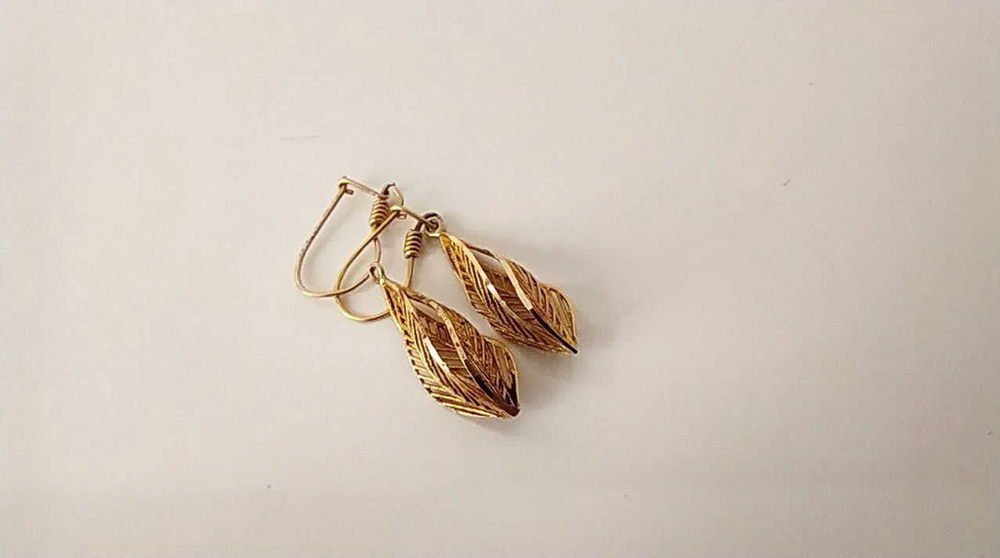
Hadis, a mother of three, also decided to donate the gold coins she had received upon the birth of each of her children.
“By God’s mercy, I have three healthy and righteous children. These coins were given to me as a gift, and I had put them aside to spend them when needed," she said.
"Today I can give up the gifts my children gave me and instead ask God to accept them in His grace and raise them to be soldiers of the faith. And soon, God willing, I will travel with them to al-Quds, where we will offer a prayer of gratitude together."
Mohammad Momtahen also narrated how he donated a pair of earrings belonging to his late wife who was martyred in a terrorist attack last year near the burial site of Iran’s top anti-terror commander Qassem Soleimani in the city of Kerman during a ceremony marking his fourth martyrdom anniversary.
A few days ago, when he heard that Iranian women were donating their gold in support of the resistance, he was reminded of Fatemeh’s earrings, the only piece of gold he had as a keepsake.
“Fatemeh’s pendant and necklace had been shattered and almost lost in that terrorist attack. The earrings still carried her scent, and parting with them was incredibly difficult for me," he was quoted as saying by Fars news agency.
"However, I knew that if Fatemeh were alive, she wouldn’t hesitate for even a moment to give them.”
In a remarkable display of generosity, an unnamed Iranian woman from Tabriz also contributed substantially to the Lebanese people by gifting her $29,200 (1.7 billion Toman) worth gold set.
Zahra Kamali, who is in charge of the Ommahat al-Quds (Arabic for Mothers of al-Quds), a working group affiliated with Nehzate-e Madari NGO, told the Press TV website that their campaign for collecting jewelry began almost a year ago in a gathering of women in Jameh Mosque of Khorramshahr in southern Iran.
“The gathering was mainly aimed to increase awareness about the Palestinian cause, but when we realized that Yemeni women, despite all the economic hardships they are going through, have donated their jewelry to the people of Gaza we decided to do the same thing,” she said.
Kamali added that the move also reminded them of how Iranian women used to give away their jewelry during the eight-year imposed war with the West-backed Iraqi dictatorship in the 1980s
“After we announced that we have decided to collect jewelry, a significant amount of gold accessories were collected and we continued to advertise the campaign in various other gatherings across the country,” she noted.
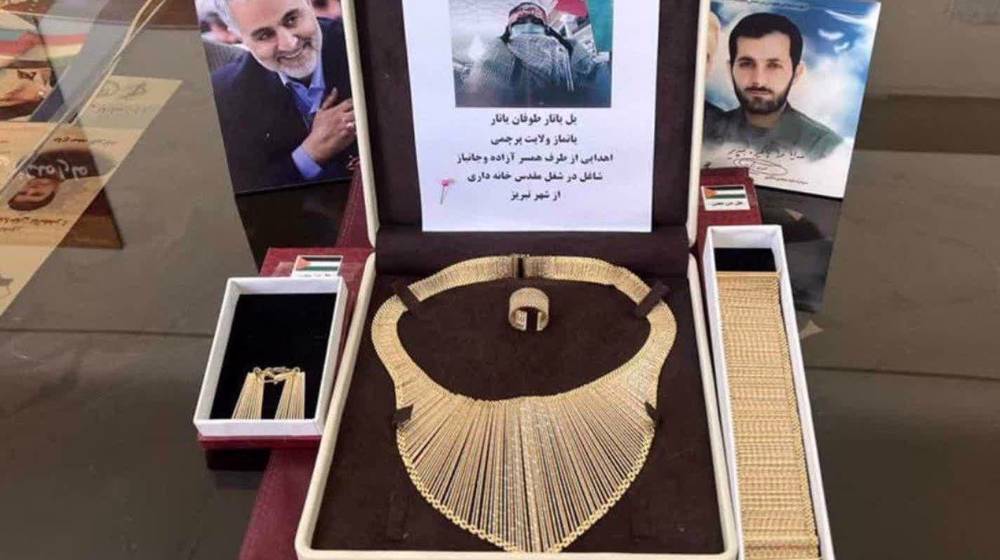
The jewelry collected in two months was worth 2 billion tomans (nearly 33,000 USD) and was delivered to Brigadier General Amir-Ali Hajizadeh, the commander of the Islamic Revolution Guards Corps (IRGC) Aerospace Division, according to Kamali.
Part of it was also delivered to the office of the Leader of the Islamic Revolution Ayatollah Seyyed Ali Khamenei, she said.
“Following a decree by the Leader on October 4 that aiding and supporting the oppressed people of Lebanon is obligatory, the second phase of our campaign gained momentum,” Kamali highlighted.
In a charity event named “Golden Empathy” in the Iranian capital, Tehran on October 12, nearly 2.5 kilograms of golden accessories and 200 million tomans (3,300 USD) were donated, she said.
Ommahat al-Quds is not the only group that is collecting jewelry, hundreds of other grassroots activists, volunteer groups, and a large number of young people are the main driving forces behind these philanthropic initiatives.
As support for the Lebanese and Palestinian people continues to grow, various fundraising activities have experienced a surge in popularity among the public in recent months.
These initiatives, driven by a shared desire to provide assistance to war-affected people in Gaza and Lebanon, have brought together people from different walks of life to make a positive impact on the lives of those affected by Israel’s devastating onslaught.
Ommahat al-Quds is not the only group that is collecting jewelry, hundreds of other grassroots activists, volunteer groups, and a large number of young people are the main driving forces behind such philanthropic efforts.
As support for the Lebanese and Palestinian people continues to grow, various fundraising activities are experiencing a surge in popularity among the public.
These initiatives, driven by a shared desire to provide assistance, have brought together people from different walks of life to make a positive impact on the lives of those affected by the genocidal onslaught.
Setting up “resistance kitchens” across the country is another community-driven effort led by Ommahat al-Quds and other charities and non-governmental groups to collect aid for people in Lebanon and Gaza.
Proceeds generated from food sales in local neighborhoods will be allocated to support the people of Lebanon in their time of need.
“By contributing to these fundraising initiatives, individuals are not only enjoying delicious meals but also playing a vital role in providing essential aid to Lebanon,” wrote one social media user sharing an image of a resistance kitchen in one of Tehran’s eastern neighborhoods.
“This heartening display of support illustrates how small acts of kindness can culminate in significant change, fostering hope and resilience within the Lebanese community,” wrote another user.
Remarkably, these fundraising efforts are predominantly spearheaded and financed by women, highlighting the crucial role they play in driving positive change within their communities.
While the Israeli military is seemingly poised to strike Al-Sahel Hospital in Beirut citing false and slanderous claims that Hezbollah has stashed substantial amounts of cash and gold beneath the hospital, Iranians are undertaking various additional initiatives to provide support and assistance to Lebanon and Palestine, often by contributing their personal savings and resources to these efforts.
Other such efforts include the crafting of hats and scarf sets for sale, with proceeds going towards fundraising for people in Gaza and Lebanon.
Additionally, community members are baking bread as a means of providing sustenance to those affected by the Israeli carnage in Gaza and Lebanon.
In some instances, individuals have even gone as far as selling their homes to raise funds for resistance groups.
The widespread involvement in these initiatives even transcends religious boundaries, with both Muslim and non-Muslim communities, including Zoroastrians and Christians, making substantial contributions to the cause.
“These diverse efforts showcase the collective determination and empathy of people from various backgrounds, uniting in their shared goal of aiding Lebanon and Gaza during this challenging time,” said Maryam Heidarzadeh, a charity worker.
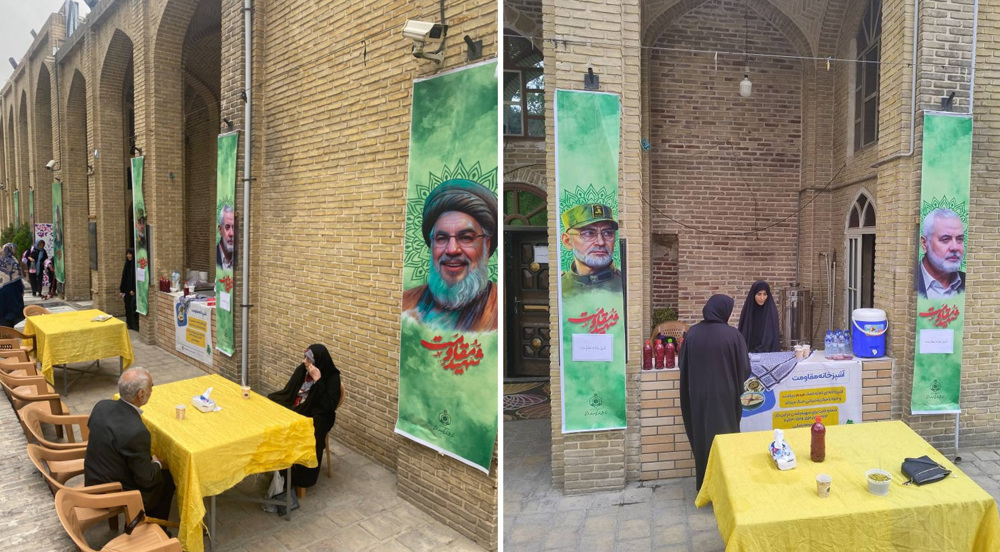
Iran-e Hamdel
In addition to grassroots efforts, state-led initiatives are also playing a crucial role in coordinating and facilitating the collection of aid for the people of Lebanon and Gaza.
These state-backed efforts not only supplement the work done by community organizations but also ensure a more comprehensive approach to providing relief to those affected by the Israeli genocidal war that completed one year earlier this month.
The “Iran-e Hamdel” national campaign is one such initiative also launched in response to the decree issued by the Leader of the Islamic Revolution on October 4.
The campaign had previously gone through three phases in 2020 and 2021, with the support of the Imam Khomeini Relief Foundation and Iran’s Welfare Organization, to assist people whose lives and businesses were affected by the COVID-19 pandemic.
These previous efforts were successful, and now, considering the destruction caused by the Israeli regime’s relentless attacks in Palestine and Lebanon, especially with the intense bombardments, the campaign has resumed its activities, says Iman Attarzadeh, the secretary of the national campaign.
“Given the Leader’s religious decree, a sense of urgency and duty has emerged. Once again, the faithful Iranian community and supporters of the resistance movement, as always, have stepped up to help their fellow members of humanity,” he added.
Over the past three weeks, various methods have been employed by the Office for the Preservation and Publication of the Works of the Leader to collect donations within the framework of the fourth phase of the “Iran-e Hamdel” campaign, with the slogan “Human beings are members of one another.”
Iranian women, children unite to donate gold to Lebanon@gisoumisha reports from Tehran. pic.twitter.com/2HSHxa5BqF
— Press TV 🔻 (@PressTV) October 13, 2024
One of these methods is through the USSD code #14*, which was specifically designed for donations under 200,000 tomans (about 4 USD).
Other methods include transferring money to account numbers linked to “Iran-e Hamdel,” announced on the Leader’s website KHAMENEI.IR allowing direct donations.
Iranian women who are willing to donate their jewelry can also send number 2 to the code 3000222 to express their readiness.
Additionally, given the extensive destruction caused by the Israeli regime in Lebanese cities, assistance to the war-affected people of Lebanon will not be limited to a short period, according to Attarzadeh.
“One method of support is for interested individuals to commit to covering the expenses of war-affected families for a duration of 1 month to 1 year,” he said.
Attarzadeh explained that this type of long-term support has also been well-received, with many pledging to support their Lebanese brothers and sisters for an extended period.
“Essentially, this campaign is a long-term effort, not a short-term response,” he added.
Kamali, the head of Ommahat al-Quds, emphasized the power of storytelling in motivating others to join the campaign.
“As people share their experiences and perspectives on social media, it inspires a broader audience to become involved, fostering a sense of empathy and unity in the pursuit of a common goal,” she told the Press TV website.
“A deeper understanding of the concept of resistance and its importance in combating oppression and defending the Palestinian and Lebanese people can persuade individuals to contribute to the cause.
"By highlighting the significance of resistance, people are more likely to recognize the need for their support and become motivated to take action."
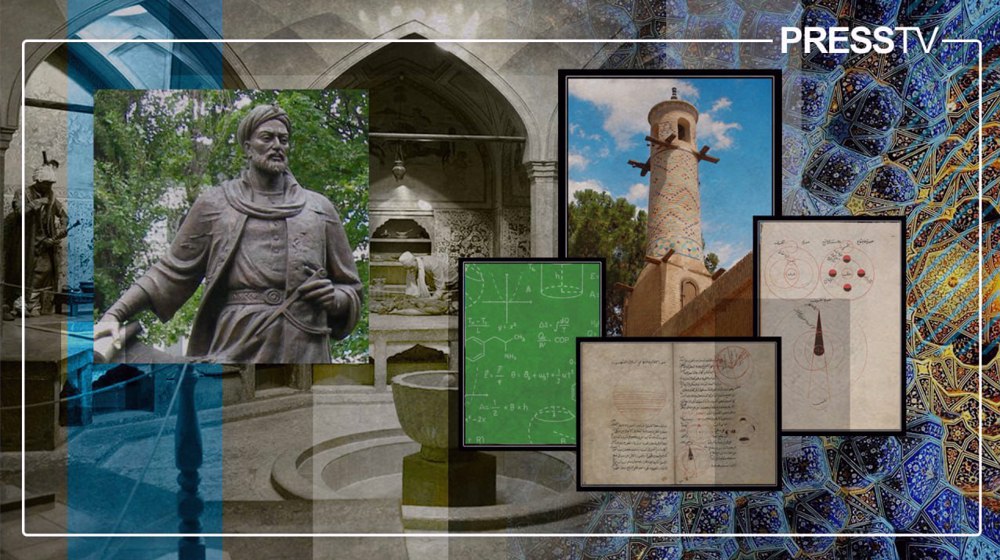
Remembering Sheikh Bahai, Iran's iconic theologian, astronomer, engineering genius
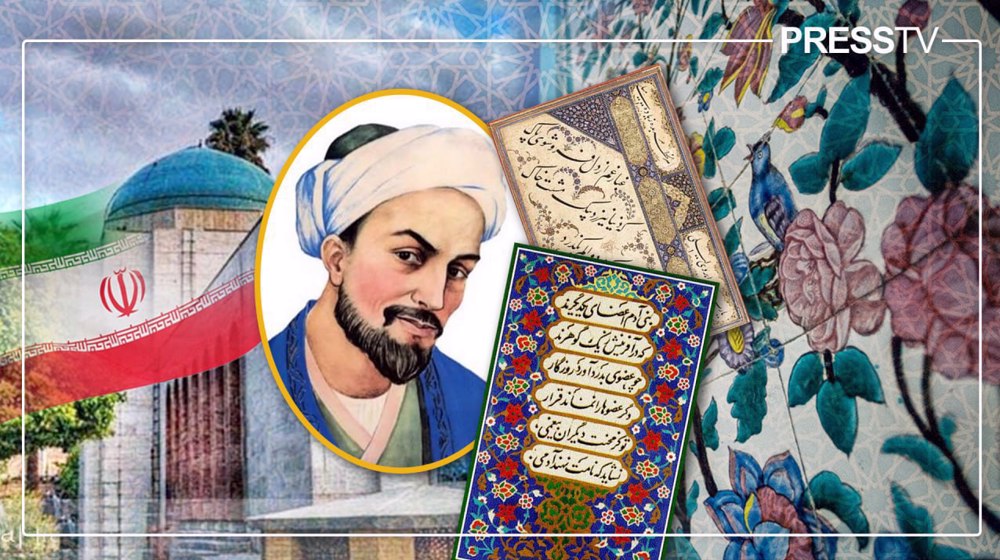
Remembering Saadi Shirazi, Persian poet whose message of universality endures
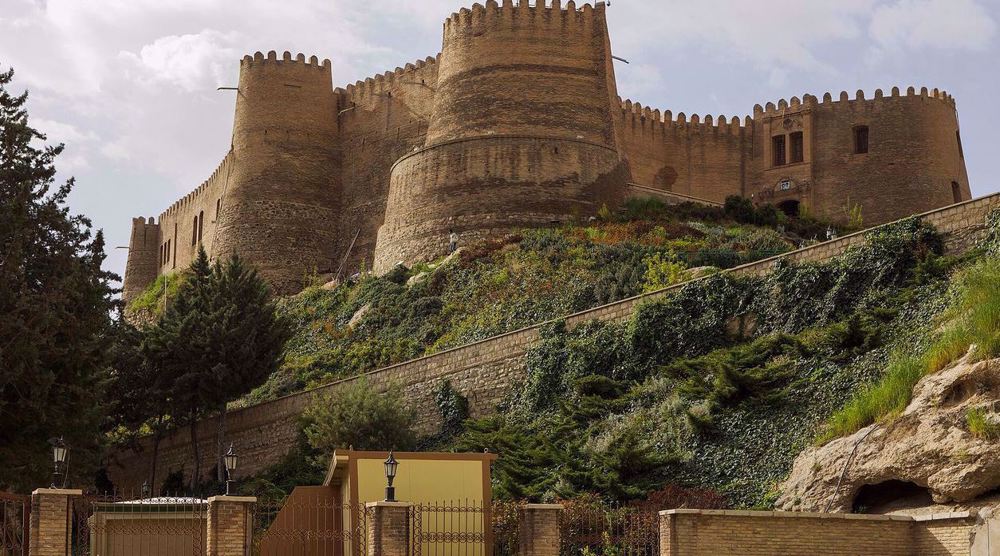
Tehran seeks UNESCO recognition for Iran mirrorwork art and Falak-ol-Aflak fortress
Over 100 rabbis, cantors slam Trump for pro-Palestine campus crackdown
Nearly 30 Palestinians killed in fresh Israeli strikes on Gaza
VIDEO | Press TV's news headlines
FBI, local police raid homes of pro-Palestine activists in Michigan
Trump ratings low amid US economic turmoil
VIDEO | Trump tariffs: A wrecking ball!
Israel deprives Gazans of basic needs for ‘survival’: UN
South Africa has no choice but to support resistance against Israel's genocide in Gaza


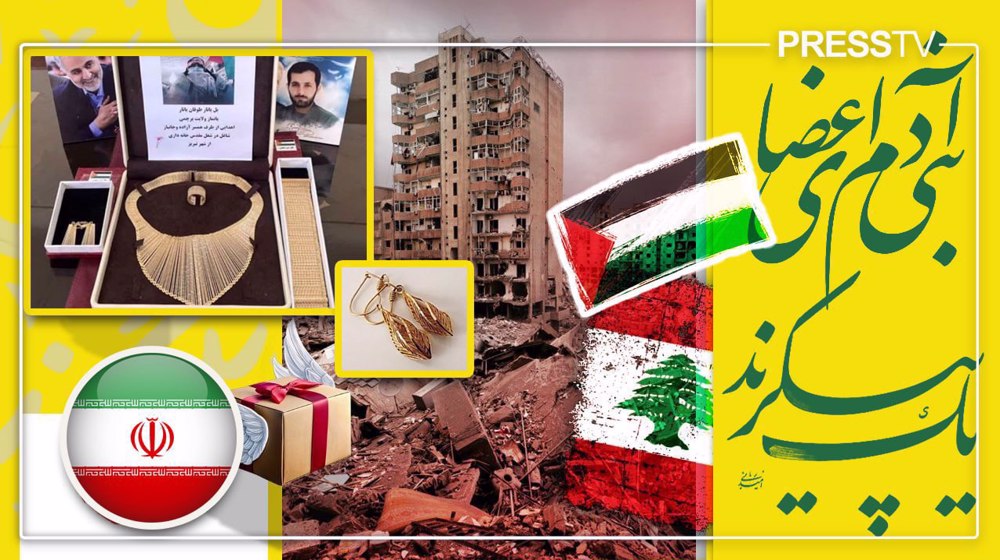
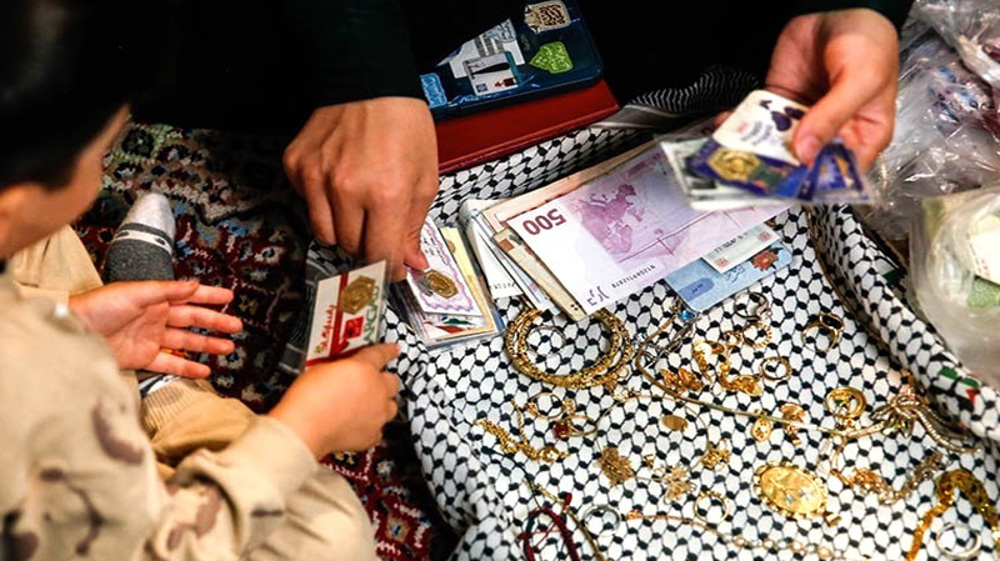



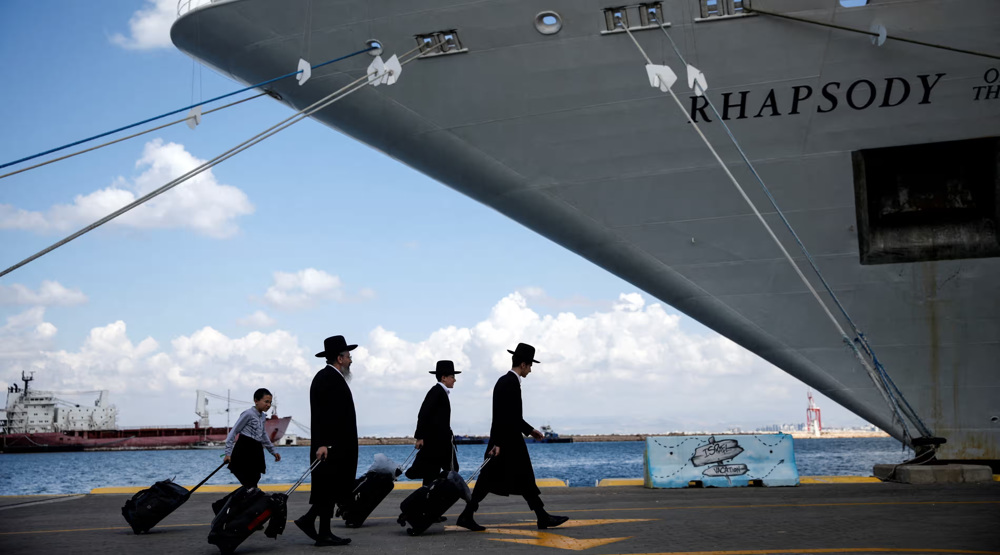
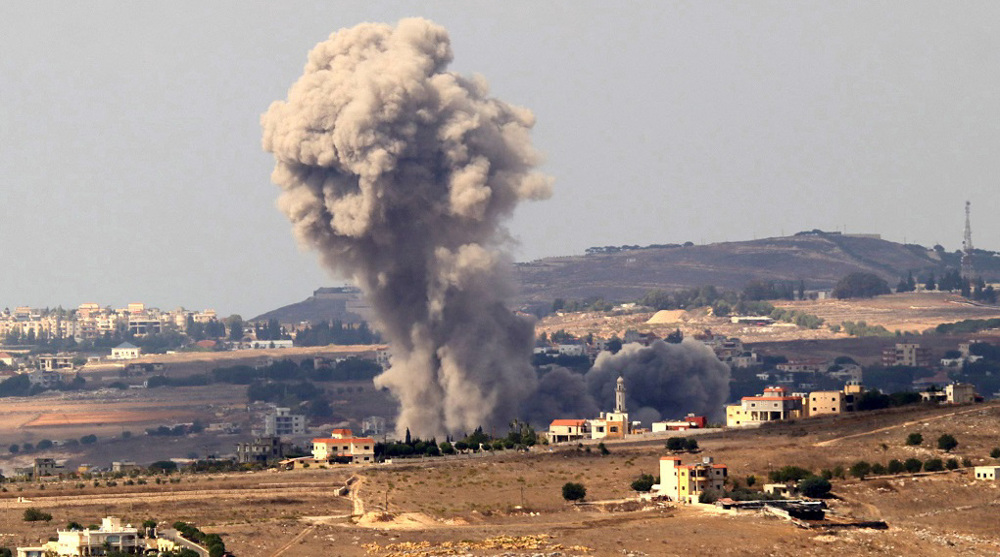
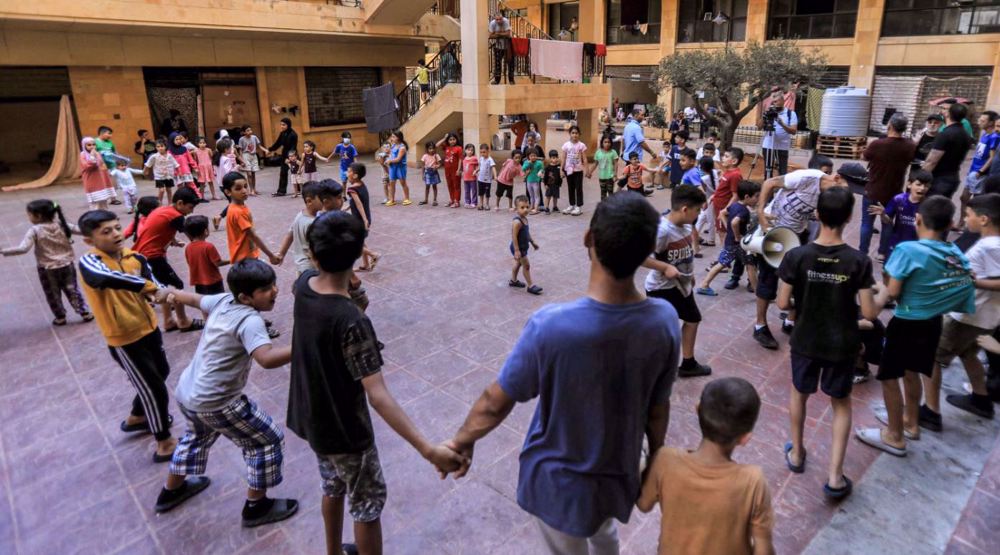
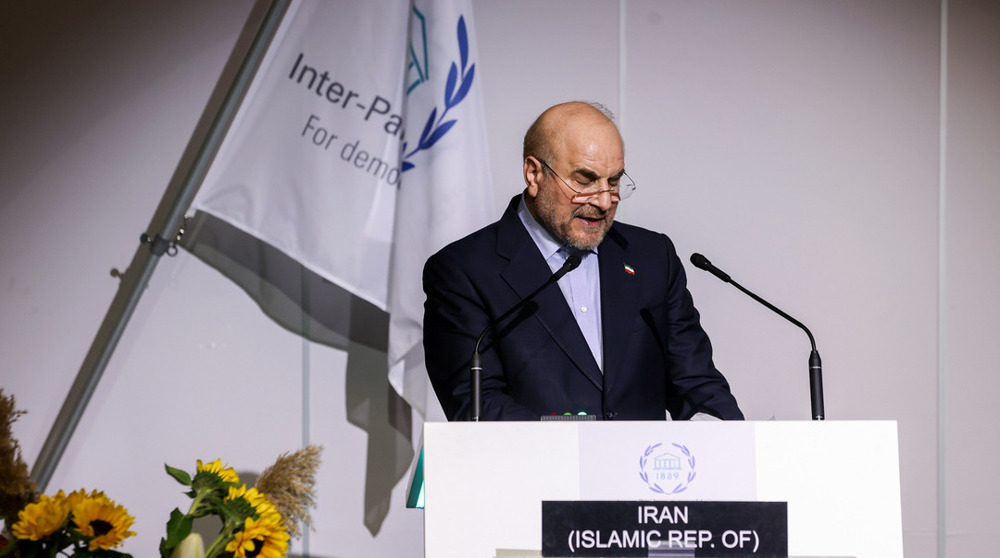

 This makes it easy to access the Press TV website
This makes it easy to access the Press TV website